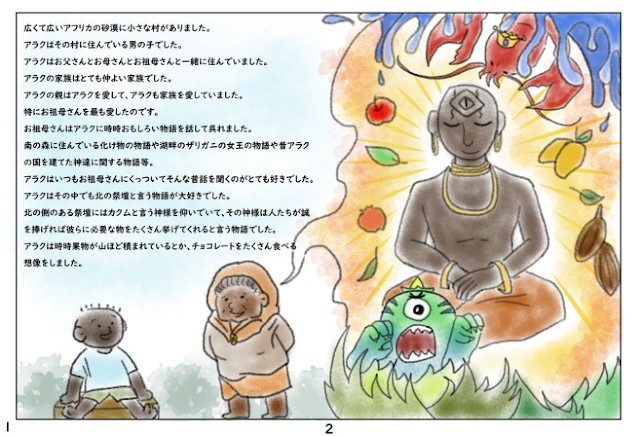A Long Walk to Global Citizenship part 3
This is part three of a three part series about the global project that was launched in August 2020. This global project was launched about the book every Sawlian learned during class time, A Long Walk to Water. Since all Sawlians had read it, anyone could join the project. Students could organize their team to three people maximum.
Among the many teams that participated in the global project competition, one group wrote a fairy tale in Japanese. The PRESS interviewed Seo Jeongmin, a first grade Japanese Major. He wrote with his friends “Arak and His Friends”.
Press: What was the topic for your
team’s work?
Seo Jeongmin: Our topic was
family, water, lost boys and overcoming adversity. We wanted to talk about the
difficulties of Salva so we picked them. Also, we considered that our creation
was a fairy tale for children. The things we tried to say to children through
fairy tales is, we have to try hard until the end even if in a bad situation.
We need love our family. We should also save valuable resources but we should
know how to share them with the people in need at the same time.
Press: What kinds of creation did you
create?
Seo: We made a fairy tale for children. We
wrote about wartime situations that Lost Boys who lost their homes in war lagged.
We also wrote about the water shortage situation of Sudan through purified
expression for our children readers. When we drew illustrations, we also made an
effort to draw characters and backgrounds more cutely. Lastly, we wrote a fairy
tale in our major language, Japanese.
Press: How do you think your fairy tale will help with situations presented in A Long Walk to Water?
Seo: It is not straightforward, but we are talking about the difficulties children from developing countries are experiencing through Africa or some other way through fairy tales. We believe that it would be an early education about difficult countries to let children know about many people’s suffering in the world through fairy tales. Additionally, fairy tales written in Japanese are rare, so it will help deliver messages to Japanese children who are not good at English. Through this, we can introduce people’s continuous attention to developing countries’ poverty problem. We believe that it will be a chance to come up with a solution.



Comments
Post a Comment